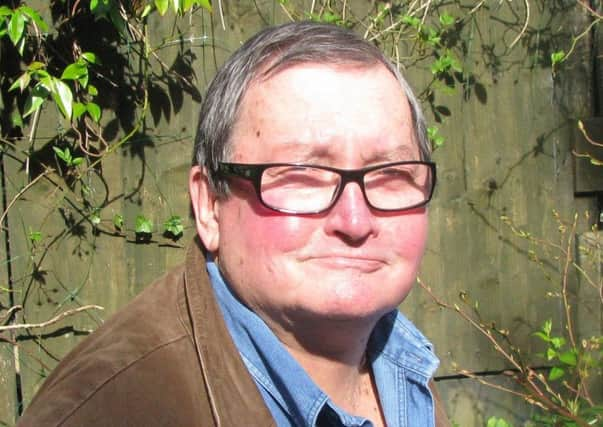Obituary: Terrance Dicks, prolific writer of Doctor Who scripts and novelisations


It was 1968 and Doctor Who was pretty much on the point of collapse when Terrance Dicks joined the team as writer and script editor. The show had been going for five years and was due to be wound up at the end of the current season. “I thought it was like being given a job on the Titanic,” Dicks said.
“They were actually looking for a replacement at the time. But they never really found anything, so they decided to do another year of Doctor Who. Around that time, it all sort of came together.”
Advertisement
Hide AdAdvertisement
Hide AdDicks stayed with the team as script editor for six years, and subsequently wrote several further Doctor Who scripts, including the feature-length 20th anniversary special, The Five Doctors, in 1983.
The Doctor Who News website described him in 2015 as “arguably the most prolific contributor to Doctor Who”. As well as serving as script editor and writing or co-writing dozens of episodes, he also wrote more than 60 novelisations of Doctor Who’s TV adventures at a time before video when these books were the only way for young fans to catch up on the Doctor’s earlier adventures.
The acclaimed fantasy novelist and comic book writer Neil Gaiman said: “I remember reading his and Malcolm Hulke’s book The Making of Doctor Who when I was 11 or 12, and deciding then that I would one day write an episode of Doctor Who.” Dicks also wrote several later original Doctor Who novels and two Doctor Who plays.
Doctor Who: The Ultimate Adventure was staged in 1989 in Aberdeen and Glasgow, with Jon Pertwee, and a few months later at the Playhouse in Edinburgh, with Colin Baker taking over. The Doctor had survived the Daleks and Cybermen, but in this instalment he has to survive an encounter with Margaret Thatcher.
Dicks was born in London in 1935, studied English at Cambridge University and worked as an advertising copywriter, writing radio plays in his free time.
He got his break in television when writer Malcolm Hulke asked him to work with him on a script for an early episode of the fantastical secret agent series The Avengers in 1962, before Diana Rigg took over from Honor Blackman as the female lead.
Determined to develop his career in television, Dicks took a cut in earnings to work as a freelance script editor. While working on the soap opera Crossroads he met writer Derrick Sherwin, who subsequently went to work on Doctor Who and in turn recruited Dicks.
As assistant script editor, Dicks rewrote part of several Doctor Who adventures and then teamed up with his old friend Malcolm Hulke to write the epic story The War Games, which introduced the concept of the Time Lords (of whom the Doctor was one) and signalled the end of Patrick Troughton as the Doctor.
Advertisement
Hide AdAdvertisement
Hide AdDicks recalled that a couple of other storylines had fallen through when Sherwin came to see him and declared: “Terrance, we need a ten-part Doctor Who and you’re going to write it and we need it next week.’”
Although Dicks had feared that Doctor Who was to be axed at the end of the series, it returned in 1970 with Troughton transformed into Jon Pertwee – the “Third Doctor”. “He wasn’t the greatest actor, but he had charisma,” said Dicks.
Four years later Tom Baker was working on a building site when Dicks and producer Barry Letts met him to discuss the possibility of him becoming the Fourth Doctor.
“Tom has got that enormous vitality about him,” said Dicks. “If you say something to Tom like ‘Good morning’, he’ll say ‘Good morning? Is it? It’s a wonderful morning? Is it a wonderful morning?’ and all this will come across at you, and I was able from the beginning to write it into the script for the new Doctor.”
Dicks was no longer script editor when Peter Davison became the Fifth Doctor in 1982, but he wrote The Five Doctors. It brought together all five incarnations of the Doctor, though William Hartnell, who played the first Doctor, was ill and a stand-in had to be used for most scenes. And late in the day Dicks was told that negotiations with Tom Baker had fallen through.
“I got a phone call from Eric Saward (who succeeded Dicks as script editor), saying ‘How’s it coming? Have you finished?’. I very proudly told him I’d just finished. And he said ‘Oh my God!’, which is not the reaction you’d expect.
“I asked what had happened, and he said ‘Well, I’m terribly sorry, but there was a confusion between Tom, his agent and us. In spite of the fact that we thought he was going to do it, he now isn’t. So, you’ve got to rewrite it without Tom Baker’.”
Dicks was told to incorporate footage of Baker that had been shot for a Doctor Who story that was never broadcast because of a strike. He rejigged the script without even seeing the footage.
Advertisement
Hide AdAdvertisement
Hide AdThere would be two more Doctors before the show was cancelled in 1989, there was a one-off television movie with Paul McGann in 1996, and there have been a further five Doctors, since Doctor Who was revived in 2005, making 13 incarnations in total. There were also two feature films in the 1960s with Peter Cushing, but his Doctor is not included in the official canon.
Dicks served as script editor and latterly producer on a string of BBC literary adaptations, including Great Expectations (1981), The Hound of the Baskervilles (1982), Oliver Twist (1985), The Diary of Anne Frank (1987) and Vanity Fair (1987). He is survived by his wife Elsa and three children.
Brian Pendreigh